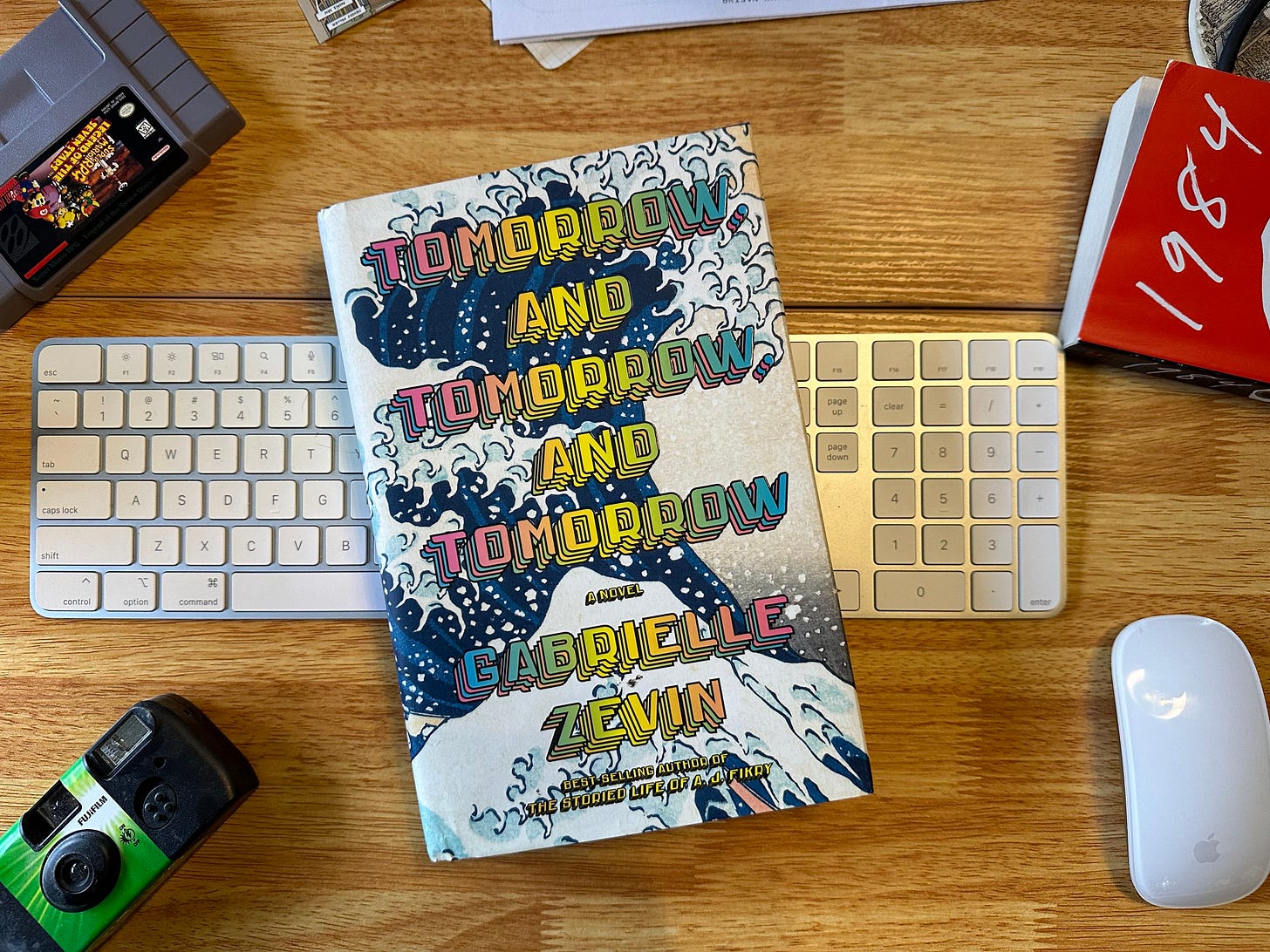Is It Possible to Keep Readers Hanging On to Every Single Letter of a 65-Word Sentence?
Lessons from a stunning NYT Bestseller
But first, this:
Books aren’t supposed to make you cry.
You see weird squiggles apparently called “letters.” Letters form something named “words.” Words combine to make little missives called “sentences.” Sentences combine to “paragraphs” and “pages” and so on.
When you read, you’re decoding a language puzzle. “What instructions has this author left me?”
It should be a purely logical activity.
But it isn’t.
Research shows that our traitorous brains can tell no difference between reading a well-written story and actually experiencing that event.
When Leslie dies at the end of Bridge to Terabithia, you literally feel that.
When Winston Smith gets tortured by rats in 1984, you cringe.
When Harry Potter falls in love with Ginny, so do you.
And — if you’re me reading Gabrielle Zevin’s gorgeous Tomorrow and Tomorrow and Tomorrow — you sob your way through Chapter 7 when…
Well. Let’s not spoil that.
Instead, let’s take a look at the beginning of the book, in which Zevin sets up her decade-spanning novel with an exquisite opening sentence.
It reads:
Before Mazer invented himself as Mazer, he was Samson Mazer, and before he was Samson Mazer, he was was Samson Masur - a change of two letters that transformed him from a nice, ostensibly Jewish boy to a Professional Builder of Worlds — and for most of his youth, he was Sam, S.A.M. on the hall of fame of his grandfather’s Donkey Kong machine, but mainly Sam.
The question here:
Why is this long sentence so darn compelling?
First Writing Tactic — The Backwards Sentence
The opening sentence starts with an with an adverb clause (a phrase that modifies a sentence’s verb).
Immediately, the reader needs to close the loop.
Consider the following lines.
Feel how they hook you.
“Since you’ve been gone… (I can breathe for the first time)” - Kelly Clarkson
“After all is said and done… (more is said than done)” - Aesop (allegedly)
Most writing advice says: “Get to the point!” But the “point” of this sentence (the subject and verb) does not reveal itself until 48 words in.
“He was Sam.”
When was he Sam?
“Before (he) invented himself as Mazer…”
Second Writing Tactic — Anadiplosis
A rhetorical figure made famous mostly by Yoda:
“Fear leads to anger.
Anger leads to hate.
Hate… leads to suf-fer-ing.”
(If you didn’t mentally read that in your best Yoda voice, we probably can never be friends).
Anadiplosis is a tactic you can shamefully swipe. It almost always works because it feels so logical. The structure is something like this.
A >> B
B >> C
C >> D
To break it down for our current example:
Mazur came after Sam Mazer
Sam Mazer came after Sam Masur
Sam Masur came after Sam.
Third Writing Tactic — Secret Audience Language
Answer quickly:
Do you know what a “Donkey Kong machine” is?
Upon reading that phrase, do you go back in time? Can you picture yourself playing one?
For me, these words trigger an old memory. I’m in swimming trunks, dripping on the KOA’s tile floor. My brother and I sneaked away from the pool with a handful of quarters.
Half our money went to ice cream sandwiches, which dripped down our bare chins and slithered into our belly buttons.
The other half was destined for a 6-foot box in the corner, flashing lights drawing us, joystick beckoning.
For gamers, a “Donkey Kong machine” is instantly recognizable. It’s part of our vocabulary, just like “foot” or “television” or “ice cream sandwiches.”
“Donkey Kong machine” will hook the audience most likely to adore this book.
This piece of advice comes with a warning: using secret language of “your people” acts like a visceral siren call. Some will follow it to the ends of the earth. Others will cover their ears and walk away.
Case in point: My wife read the words “Donkey Kong machine” and abandoned the book. She probably will never read it.
This is, of course, how great writing works.
Try to please everyone, and you wind up bland word soup.
But whisper to your secret club, and you create words that have the chance to last a lifetime.
Or at least, you can get a word-obsessed blogger to talk about it.
Much love as always <3
-Todd B from Tennessee




